
Conference to summarize 10 years of implementing the project to control MCBGTKS in Thanh Hoa .
Efforts and challenges in the "journey" to gender balance
Realizing the consequences of the situation of MCBGTKS, Thanh Hoa has implemented the Project to Control MCBGTKS for the period 2016-2025 with many synchronous solutions, from communication, education , inspection and supervision to building community models. Every year, the Provincial Department of Population issues specific plans and instructions; coordinates with sectors and organizations to synchronously deploy activities. The whole province has organized nearly 3,900 specialized talks on MCBGTKS in the community for couples of childbearing age, 80 reports, 20 major newspaper articles and more than 8,000 news and radio broadcasts on the grassroots radio system. Nearly 410,000 leaflets and 20,000 Q&A documents on MCBGTKS have been distributed to villages, hamlets and neighborhoods. In addition, many women's clubs, all of which are girls and do not have a third child, have been established in 100% of communes, contributing to spreading the message of gender equality and enhancing the role of women and girls in the community.
In addition to the achieved results, the "journey" of gender balance in Thanh Hoa still faces many difficulties and limitations due to limited funding, causing activities to not be implemented synchronously; the specialized population inspection force no longer exists; sanctions for the act of choosing the sex of the fetus are still light, not enough to deter; there is no separate support policy for families with only girls; there are no clear incentives to improve the status of girls. In addition, communication work at the grassroots level is not regular, some communes and wards only organize 1-2 activities/year so the effectiveness is still limited.
Ms. Le Thi Nhung, Deputy Director of Nhu Thanh Medical Center, said that one of the biggest difficulties is the mountainous area, the scattered population, the difficult economic life, and the uneven educational level. In many places, the ideology of "preferring sons and despising daughters" is still deeply rooted, causing many families to want to have sons to continue the family line and worship their ancestors. This mentality makes it difficult to mobilize people to change their behavior of having children as they wish. In addition, the population staff at the grassroots level often changes, most of them hold many jobs, so their ability to closely follow the area, make statistics and propagate is limited. Some staff do not have a firm grasp of the actual situation, and have not promptly detected cases at risk of choosing the sex of the fetus for early intervention...
According to the 10-year summary report (2016-2025) of the Thanh Hoa Provincial Population Department, in 2016 the province's sex ratio at birth was 115 boys/100 girls; in 2017 it increased to 117/100; by 2024 it decreased to 113.1/100 and in 2025 it is estimated to be 113/100. Although there is a downward trend, it is still high and significantly higher than the natural balance of 105-106 boys/100 girls. If this trend is not controlled, in the next few years we will have to face the situation of "too many boys, not enough girls", leading to many complicated social consequences.
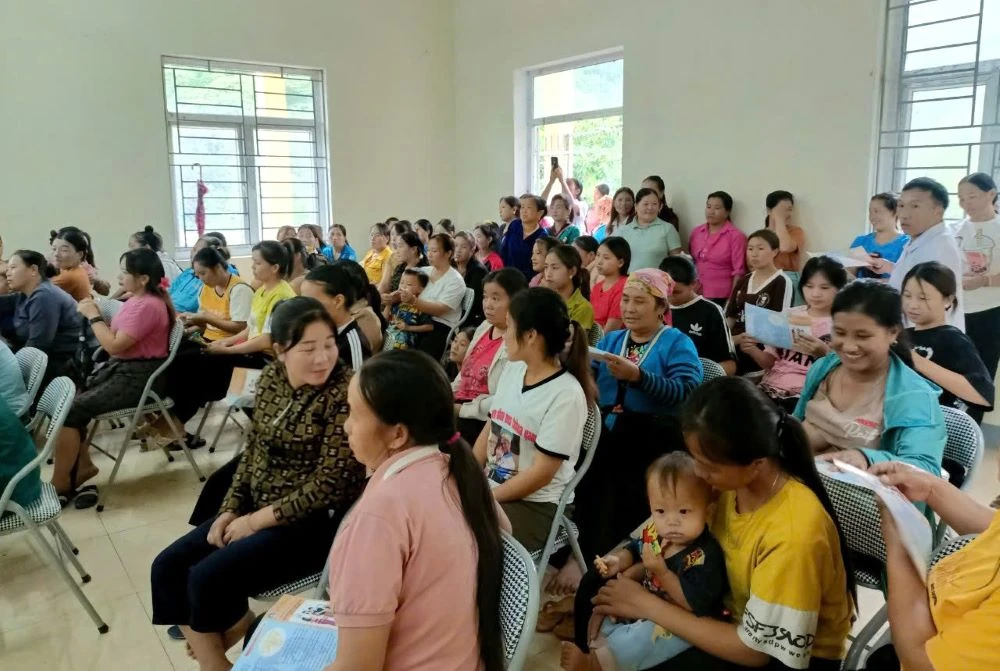
A population policy communication session for people of Nhi Son commune.
Root causes and worrying consequences
According to experts, the main cause of the gender bias is the strong male preference and female prejudice among a segment of the population, especially in ethnic minority areas. Many families still have the mentality of "having a son to continue the family line, worship ancestors, and take care of parents in their old age", while daughters are considered "other people's children". Along with that, the development of medical technology, especially ultrasound and fetal sex testing services, has been exploited, making the selection of fetal sex still sophisticated and difficult to control. Propaganda work, although strongly implemented, is not really widespread and sustainable. In many localities, the organization of specialized talks or club activities is only carried out once a year, the number of participants is limited; the team of population communication officers at the commune level changes frequently, and their capacity is uneven. Prolonged gender bias causes many serious consequences for society. First of all, this imbalance can lead to an increase in social evils such as human trafficking, prostitution, cross-border marriage for economic purposes, domestic violence, divorce... When natural marital needs are not met, negative behaviors will arise, causing community instability.
Furthermore, this situation also has a direct impact on population quality and socio-economic development. When the male ratio is too high, the number of women of reproductive age decreases, leading to a sharp decrease in the natural birth rate, causing the risk of premature population aging. A society lacking women will face an imbalance in labor, reduced population reproduction capacity, and lead to major challenges in social security in the future.
More seriously, MCBGTKS also reflects deep gender inequality, when the value of women is underestimated, when giving birth to girls is considered a “disadvantage”, then girls themselves are discriminated against from birth. This is a major barrier to the process of building a civilized, fair and sustainable society.

Hoi Xuan commune youth learn about the consequences of MCBGTKS.
Need for synchronous and long-term solutions
Mr. Bui Hong Thuy, Head of the Thanh Hoa Provincial Population Department, emphasized that solving the gender imbalance problem is a long-term and complicated process, requiring perseverance and synchronous coordination of the entire political system. To achieve the goal of reducing the sex ratio to below 109 boys/100 girls born alive by 2030 according to Resolution No. 21-NQ/TW dated October 25, 2017 of the Central Executive Committee, there needs to be strong direction from government leaders, investment of State resources and strong participation of the whole society.
First of all, it is necessary to promote communication and change behavior, especially towards young people, couples preparing to get married, and prestigious people in the community. There are long-term measures to balance the psychological pressure on couples who only have daughters, improve the status of girls, build material and spiritual incentives for families, couples, and individuals to implement population policies well, not be affected by the ideology of "respecting men over women"; encourage and support women and girls in studying, taking care of reproductive health, and developing production. At the same time, perfect the legal system and strengthen inspection and supervision of medical activities, strictly prohibit the disclosure of the gender of the fetus, and strictly handle violations. The State needs to have policies to encourage and support families who have daughters, improve the status of women, and ensure social security to eliminate the mentality of "having a son to rely on in old age".
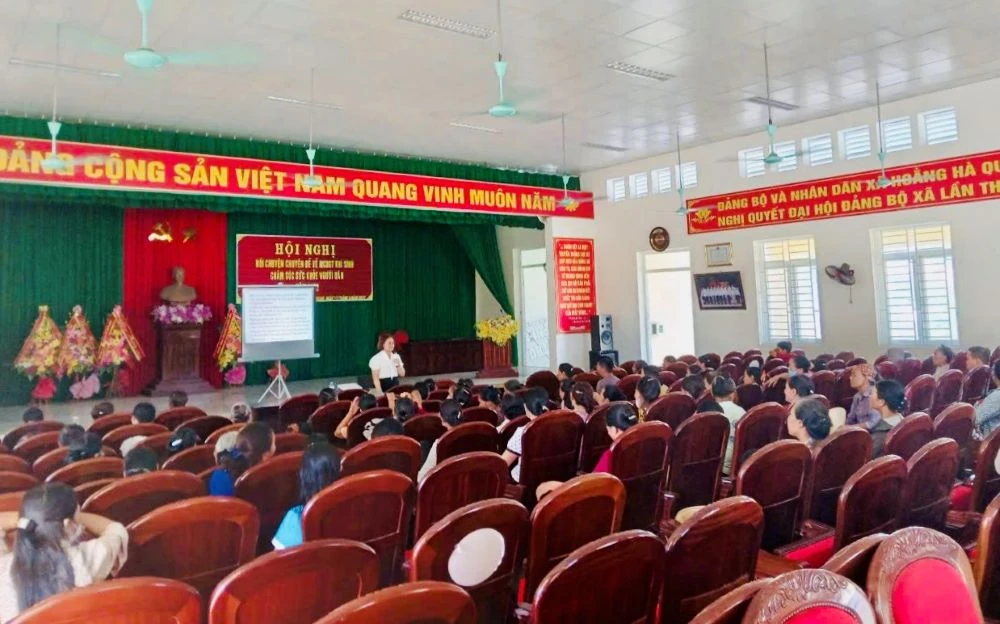
Staff of Hoang Hoa Medical Center talk about MCBGTKS for people.
In addition, building a team of capable, enthusiastic, grassroots population and communication officers is a prerequisite to improve efficiency. Every communication activity, every story, every example of a happy family, even one with only daughters, contributes to changing social awareness in a positive direction.
Solving the problem of gender inequality is not only the task of the population or health sector, but also the responsibility of the whole society – from the government, organizations, to each family and individual. When every citizen understands that both sons and daughters are precious gifts of life; when women and girls are respected, live and contribute equally – that is the solid foundation for a harmonious and sustainable development of society.
To Ha
Source: https://baothanhhoa.vn/he-luy-tu-tinh-trang-mat-can-bang-gioi-tinh-khi-sinh-266908.htm






![[Photo] Prime Minister Pham Minh Chinh attends the 5th National Press Awards Ceremony on preventing and combating corruption, waste and negativity](https://vphoto.vietnam.vn/thumb/1200x675/vietnam/resource/IMAGE/2025/10/31/1761881588160_dsc-8359-jpg.webp)
![[Photo] Da Nang: Water gradually recedes, local authorities take advantage of the cleanup](https://vphoto.vietnam.vn/thumb/1200x675/vietnam/resource/IMAGE/2025/10/31/1761897188943_ndo_tr_2-jpg.webp)



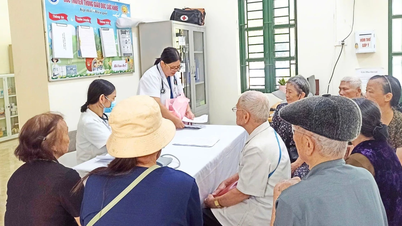







![[E - Magazine]: Perhaps everyone has a winter to remember.](https://vphoto.vietnam.vn/thumb/402x226/vietnam/resource/IMAGE/2025/10/31/1761917296095_e-magazine-co-l-w1200t0-di2543d199d5162334t11922l1-claccmmddn-137.webp)
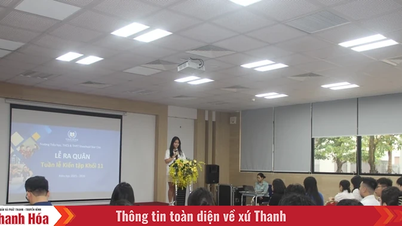




















































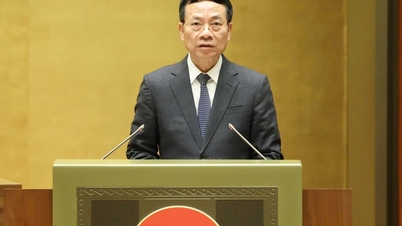




























Comment (0)